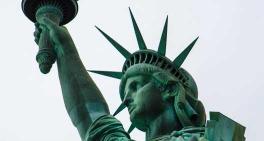Low-key days at Supreme Court may be ending soon
Featured Articles
The Supreme Court began its term with the tumultuous confirmation of Justice Brett Kavanaugh, followed by a studied avoidance of drama on the high court bench — especially anything that would divide the five conservatives and four liberals.
The justices have been unusually solicitous of each other in the courtroom since Kavanaugh's confirmation, and several have voiced concern that the public perceives the court as merely a political institution. Chief Justice John Roberts seems determined to lead the one Washington institution that stays above the political fray. Even Roberts' rebuke of President Donald Trump, after the president criticized a federal judge, was in defense of an independent, apolitical judiciary.
The next few weeks will test whether the calm can last. When they gather in private on Jan. 4 to consider new cases for arguments in April and into next term, the justices will confront a raft of high-profile appeals.
Abortion restrictions, workplace discrimination against LGBT people and partisan gerrymandering are on the agenda. Close behind are appeals from the Trump administration seeking to have the court allow it to end an Obama-era program that shields young immigrants from deportation and to put in place restrictive rules for transgender troops.
Related listings
-
Chief justice details efforts to combat workplace misconduct
Featured Articles 01/01/2019Supreme Court Chief Justice John Roberts is using his annual report on the federal judiciary to highlight the steps the branch has taken to combat inappropriate conduct in the workplace.In December 2017, Roberts asked that a working group be put toge...
-
New voter ID law immediately challenged in N Carolina court
Featured Articles 12/20/2018The North Carolina law detailing a new voter photo identification requirement got challenged in court Wednesday mere moments after the Republican-led General Assembly completed the override of Democratic Gov. Roy Cooper's veto of the measure.Six vote...
-
Supreme Court to hear closely watched double jeopardy case
Featured Articles 12/07/2018The Supreme Court is set to hear arguments about an exception to the Constitution's ban on being tried for the same offense. The outcome could have a spillover effect on the investigation into Russian meddling in the 2016 election.The justices are ta...

USCIS Will Begin Accepting CW-1 Petitions for Fiscal Year 2019
On April 2, 2018, U.S. Citizenship and Immigration Services (USCIS) will begin accepting petitions under the Commonwealth of the Northern Mariana Islands (CNMI)-Only Transitional Worker (CW-1) program subject to the fiscal year (FY) 2019 cap. Employers in the CNMI use the CW-1 program to employ foreign workers who are ineligible for other nonimmigrant worker categories. The cap for CW-1 visas for FY 2019 is 4,999.
For the FY 2019 cap, USCIS encourages employers to file a petition for a CW-1 nonimmigrant worker up to six months in advance of the proposed start date of employment and as early as possible within that timeframe. USCIS will reject a petition if it is filed more than six months in advance. An extension petition may request a start date of Oct. 1, 2018, even if that worker’s current status will not expire by that date.
Since USCIS expects to receive more petitions than the number of CW-1 visas available for FY 2019, USCIS may conduct a lottery to randomly select petitions and associated beneficiaries so that the cap is not exceeded. The lottery would give employers the fairest opportunity to request workers, particularly with the possibility of mail delays from the CNMI.
USCIS will count the total number of beneficiaries in the petitions received after 10 business days to determine if a lottery is needed. If the cap is met after those initial 10 days, a lottery may still need to be conducted with only the petitions received on the last day before the cap was met. USCIS will announce when the cap is met and whether a lottery has been conducted.




